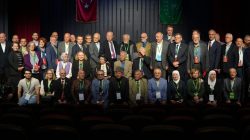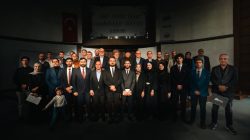
Moscow/Agency Caucasus – Valeri Hatijukov, President of the Kabardino-Balkaria Center for Human Rights, voiced concern over anonymous attempts to take the advantage of instability across North Caucasus, as there is a constant shift of stability from one republic to another in the region.
Hatijukov spoke during his presentation in Moscow on December 10 when the Russian Human Rights organizations held the third joint congress. The bulk of his presentation focused on the need for attempts to prevent Kabardino-Balkaria from becoming like Ingushetia or Dagestan.
"After President Arsen Kanokov took office, the national socio-political situation has become stabler. Also, after the government changed, there has been a better handling of bribery among senior officials. There are more concrete steps now toward economic improvement as well as creating of more employment facilities. However, neither the improvement nor the creation of employment facilities are fast enough," said Hatijukov said and blamed this on instability: "There are now more incidents in number of bomb blasts as well as attacks on the police. The reason behind it was the killing of civilians. All these things increase the social anxiety."
‘There is a change in approaches to Muslims’
Although there are still reports of pressure on relatives of the jailed Muslim youths in Kabardino-Balkaria, there is improvement in the field of human rights. Security officials have been more transparent in their conducts with problems, and there is less joint violation of rules. "Significant progress with stability is remarkably noticeable among the Muslims of Kabardino-Balkaria. The mosques are again available for public service after they were unlawfully closed down to public. And there is less complaints from the faithful that they are under police surveillance," said Hatijukov and added that there is cooperation between the government and the society to keep the progress on.
Unhappy with ineffectiveness facing non-governmental organizations while they want to involve in politics, Hatijukov said that non-governmental organizations are ineffective because they are not funded sufficiently and the public still does not hold the belief that it can defend its own rights. ÖZ/FT
[ssba]



